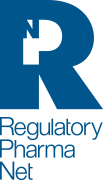The legislative framework on orphan medicinal products aims at stimulating research and development of medicinal products for rare diseases by providing incentives to developers of such products. The orphan incentives facilitate the development of medicinal products to make sure patients suffering from rare diseases have access to the same quality of treatment as other patients suffering from common diseases do.
Since 2000, the European Commission has issued over 2100 orphan designations, of which up to now 164 have obtained the Marketing Authorisation (MA) and 22 have obtained an extension of indication (22 orphan medicine and 6 extended indication obtained only in 2018). The MA trend shows a significant peak from 2014 to 2018 with 94 authorizations including new medicinal products and indication extensions.
It is quite interesting to observe the distribution of the main therapeutic areas:
- 41 % Oncology diseases;
- 19 % Alimentary tract and metabolism diseases;
- 8 % Nervous system diseases;
- 8 % Hematologic diseases.
It is not always easy to define an orphan condition, for this reason and after the strong changes in the world of rare diseases in the last decade, it appeared necessary to update the definition and acceptability of an orphan condition as fundamental starting points for the evaluation of applications for the designation of orphan medicinal products.
Regulatory and HTA assessments have different timing and remits, both evaluate different medical aspects that can be analyzed with different tools but are both highly necessary in the complete evaluation of potential orphan drugs.
In order to improve the development and facilitate the evaluation of an orphan drug, it is necessary to improve the collaboration and the exchange of information between companies, regulatory bodies and patients’ societies in order to face the most critical issues in the definition of orphan designations:
- Significant benefit
More and more challenging to argue for significant benefit in orphan conditions: difficult to generate incremental innovation in rare diseases (67% orphan designations of 2018 were based on significant benefit);
- Patient relevant outcomes
How to best generate patient-relevant data to support significant benefit (MCPC) and downstream access;
- Innovative/complex designs
How to ensure that a single development plan is acceptable for all of stakeholders;
- Balance regulatory and access with evidence generation
Regulatory knowledge very dynamic in the post-approval setting. Clarify and improve the expectation management of all stakeholders;
- Regulatory decision-making with ‘’RWE’’ Evidence sources
Defining a clear place in regulation of Registry data and natural history of the disease.
Regulatory Pharma Net is available to provide additional information and support to develop specific strategies for Orphan Designation Applications, Marketing Authorisation Applications, Early Access and Market Access in Europe.




